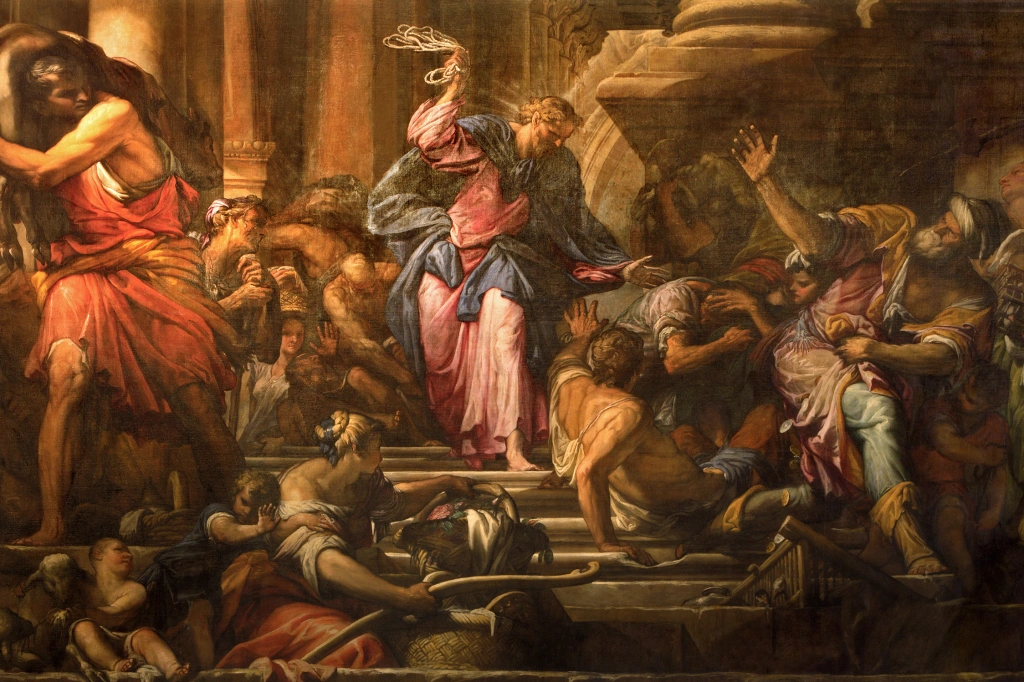Jijo Kandamkulathy, CMF
Claretian Publications, Macau
Jn 2:13-25
3RD SUNDAY OF LENT – YEAR B
We read the cleansing of the temple in today’s gospel. It was a Passover time. People from far and wide came to celebrate the Passover. For the Jews, doing this journey to Jerusalem at least once in a lifetime is a matter of great religious actualization. Jesus too walked probably the hundred-plus odd kilometers from Galilee to Jerusalem many times, probably every year!
Once, around 20 years back, when he came to this temple, it had left a lasting impression on him. He was just 12 then but had debated with the learned elderly of the temple and the city, forgetting his need to return to Nazareth. When Mary and Joseph came in search of him, he had given them an answer that took everyone by surprise, “This is my father’s house; don’t you know that I should be here?” One would have easily considered that as an immature response from a boy stepping into his impetuous teenage life a little too early. But now, when we find him again here, we realize that those words were not immature but that of great conviction. Now, he is not a child but an adult, aware of his mission with much more clarity: restoring God’s temple into the original sanctity.
This time around he recognizes that the temple is turned into a marketplace. He becomes so violent as to upend the chairs, throw away the coins, and chase tradesmen with a whip. Some people question him and ask for a sign to prove his authority to do this. He tells them to destroy the temple and in three days, he will rebuild it. The author makes a comment then, so that no one will miss the inner meaning of the text: he referred to the temple of his body. That comment would leave a lasting trail of spirituality in the Church. Paul would remind us repeatedly that we are temples of the living God. It was originally so. The body was made out of earth, God breathed his Spirit into it, and it begins to live. Desecrating the temple was intolerable for Jesus. So it is with the temple of our bodies!
In the Hindu tradition, the temple is equated with a body. Each part of the temple is known as a part of the body. There is a head, the feet, and palms. Very interestingly, the place where the deity is installed is called the womb! How concepts about the holiness of the body converge in different traditions! They all consider the body as a temple!
The authorities in Jerusalem considered the Jerusalem entry of Jesus and the subsequent cleansing of the temple as an uprising of the Galileans, and it kicked off a religious and political crisis. Jesus would pay for that with his life. But for now, there are some sympathizers who appeared to believe in him, mostly because they saw him perform some miracles. He refused to be flattered by such adulations. Instead of gathering necessary local support in a crisis period, he ignores them.
Why did he do that? The evangelist tells us that Jesus knew human nature too well. What is the human nature that he is privy to? Perhaps, he was sure that these people who believe only in miracles are not those who would transform their lives based on the values of the Kingdom of God that he was proclaiming. That cautious attitude of Jesus towards the miracle believers invites us to a deeper reflection on our own faith. Does our faith look only for miracles? Jesus is inviting us to apprentice ourselves in a faith that can align our values with that of the Kingdom of God. The Kingdom values require of us an active practice of love, compassion, forgiveness, and mercy.


 Follow
Follow


